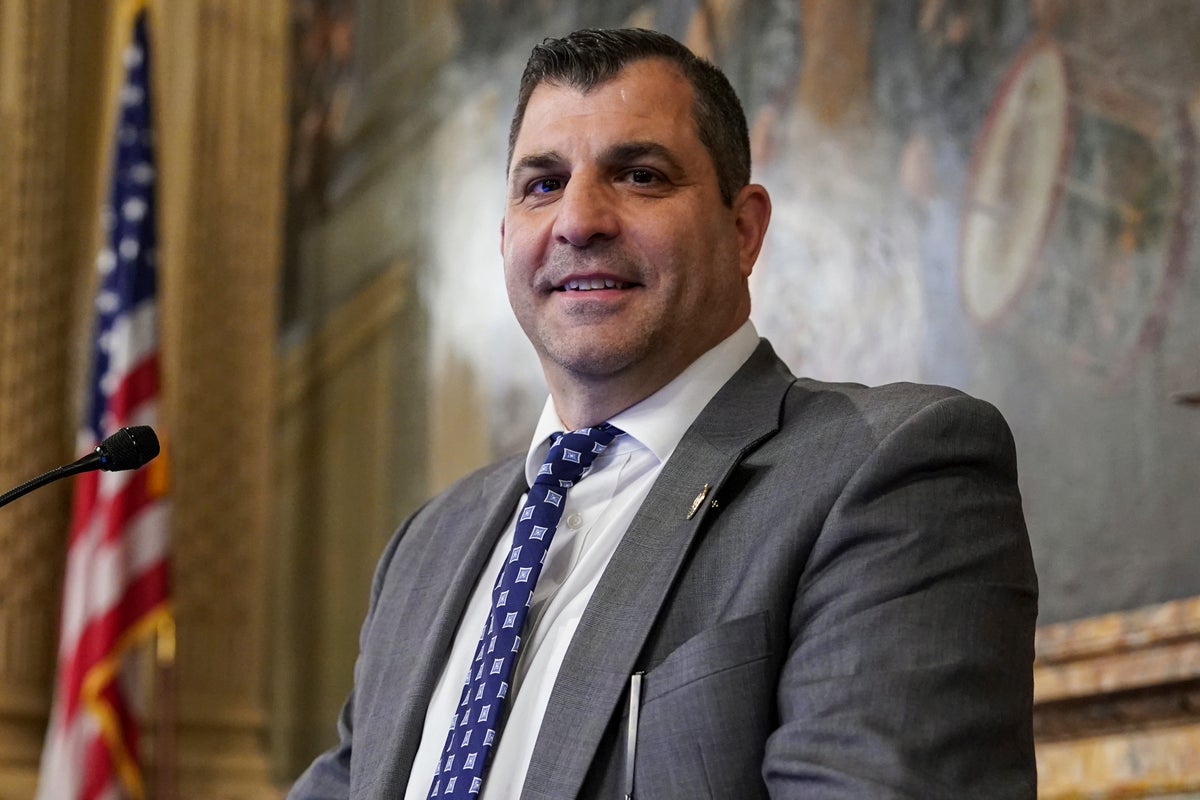
A Democrat who promised to govern as an independent was elected speaker of the narrowly divided Pennsylvania House of Representatives in a surprising move Tuesday on the strength of every Democrat and more than a dozen GOP votes.
Rep. Mark Rozzi was elected speaker by a vote of 115-85 after Republicans were unable to convert a temporary two-seat majority into a vote to retain control of the chamber. The move to nominate and elect Rozzi only began hours before the vote, but his election also leaves questions about how the chamber will operate in the short term.
Rozzi, who began his sixth two-year term from a Reading-area district this week, is best known as a champion of the effort to give victims of child sexual abuse another chance to sue perpetrators or institutions that covered it up over claims that are barred by time limits in current law.
The November election was so close — and complicated by the death of one Democrat and the departures of two others who were elected to higher offices — that what is normally a highly scripted event instead became an afternoon of drama and uncertainty.
Democrats flipped a net of 12 seats in November, the minimum amount needed to take over the chamber, 102-101, after more than a decade in the minority.
But that margin is now 101-99 with the three vacancies that will remain open until at least February. Rozzi left questions unanswered Tuesday night about how the chamber will operate in the meantime and who will function as the majority.
In brief remarks on the House floor, Rozzi said he would be independent, pledged not to caucus with either Republicans or Democrats and to staff his office with members of both parties. He decried dysfunction and obstruction in the chamber’s politics and said “never has this House been so divided.”
“I pledge allegiance and loyalty to no interest in this building, to no interest in our politics, I pledge my loyalty to the people of the commonwealth,” Rozzi said in his remarks.
Upon taking the oath of office, Rozzi turned to the parliamentarian and asked, “Alright, what do we do?”
Democrats say Rozzi will remain a Democrat and not switch his registration to independent.
Appearing with top Democrats several hours after the vote, Rozzi told reporters in the Capitol that his move to the dais was “totally unexpected.”
But Rozzi said he would not make any “grand announcement." He refused to take questions from reporters there, including whether he will change his registration to independent.
“The speakership is a nonpartisan — and I want to repeat that — nonpartisan officer of the House, entrusted with maintaining the integrity of the House,” he told reporters. “That will be my focus as speaker.”
Even so, the speakership is not necessarily a nonpartisan office, with the House coming off of a dozen years of Republican speakers who caucused with Republicans and helped lead the Republican majorities.
Rozzi had worked alongside Democratic Gov.-elect Josh Shapiro — and closely with Rep. Jim Gregory, a conservative Republican who nominated him — in pushing for the lawsuit window after Shapiro, as attorney general, unveiled a landmark grand jury report on his office’s investigation into the state’s Roman Catholic dioceses.
Gregory, from Blair County, said he and Rozzi had talked about such a possibility for months but did not bring it up until Gregory contacted House Republican leaders at midafternoon Tuesday and encouraged them to reach out to Rozzi.
Every Democrat backed Rozzi, as did 16 Republicans, including their floor leader, Bryan Cutler of Lancaster County.
In a statement, House Republicans lauded Rozzi as “Pennsylvania’s first Independent Speaker of the House.”
“Reflecting the realities of an evenly divided chamber, it is imperative we have a truly independent voice to conduct House business and manage the House floor,” they said.
Democrats had initially hoped to elevate their floor leader, Joanna McClinton of Philadelphia, to become the state’s first woman speaker, although it was not clear that Republicans would support her candidacy for speaker.
Instead, Democrats went along with Rozzi, who drew Republican support and overcame the rival candidacy of Rep. Carl Walker Metzgar, R-Somerset, who received 85 votes.
In the meantime, Cutler has a pending lawsuit designed to delay the special elections to fill two of the three vacant Democratic seats until May.
McClinton has moved to schedule those elections for Feb. 7, with the third special election.







